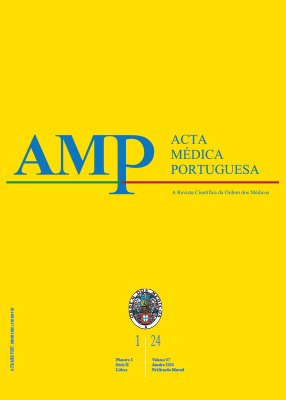Intelligent Plagiarism as a Misconduct in Academic Integrity
DOI:
https://doi.org/10.20344/amp.20233Keywords:
Artificial Intelligence, Plagiarism, Scientific Integrity ReviewAbstract
N/a.
Downloads
References
Wilches-Visbal JH, Castillo-Pedraza MC, Pérez-Anaya O. El plagio y las revistas depredadoras: un problema económico y ético en universidades públicas de Colombia. Rev Cubana Infor Cienc Sal. 2022;33:e1911.
Zúñiga-Vargas JP. Comportamiento ético en la publicación científica: malas conductas y acciones para evitarlas. Rev Educ. 2020;44:1-10. DOI: https://doi.org/10.15517/revedu.v44i1.35548
Higgins JR, Lin FC, Evans JP. Plagiarism in submitted manuscripts: incidence, characteristics and optimization of screening-case study in a major specialty medical journal. Res Integr Peer Rev. 2016;1:13. DOI: https://doi.org/10.1186/s41073-016-0021-8
Gayed JM, Jonson MK, Oriola AM, Cross JS. Exploring an AI-based writing assistant’s impact on English language learners. Comput Educ Artif Intell. 2022;3:7. DOI: https://doi.org/10.1016/j.caeai.2022.100055
Lesage J, Brennan R, Eaton SE, Moya B, McDermott B, Wiens J, et al. Exploring natural language processing in mechanical engineering education: implications for academic integrity. Int J Mech Eng Educ. 2023;0:1-18. DOI: https://doi.org/10.1177/03064190231166665
Salvagno M, Taccone FS, Gerli AG. Can artificial intelligence help for scientific writing? Crit Care. 2023;27:1-5. DOI: https://doi.org/10.1186/s13054-023-04380-2
Eaton SE. Artificial intelligence and academic integrity, post-plagiarism. University World News. [cited 2023 Mar 04]. Available from: https://www.universityworldnews.com/post.php?story=20230228133041549.
Lee JY. Can an artificial intelligence chatbot be the author of a scholarly article? J Educ Eval Health. 2023;20:6. DOI: https://doi.org/10.3352/jeehp.2023.20.6
GPT Generative Pretrained Transformer, Thunström AO, Steingrimsson S. Can GPT-3 write an academic paper on itself, with minimal human input? HAL Sciencie ouverte. 2022;8.
Lund BD, Wang T, Mannuru NR, Nie B, Shimray S, Wang Z. ChatGPT and a new academic reality: artificial Intelligence-written research papers and the ethics of the large language models in scholarly publishing. Jasist. 2023;74:570-81. DOI: https://doi.org/10.1002/asi.24750
Kooli C. Chatbots in education and research: a critical examination of ethical implications and solutions. Sustainability. 2023;15:5614. DOI: https://doi.org/10.3390/su15075614
Downloads
Published
How to Cite
Issue
Section
License
Copyright (c) 2023 Acta Médica Portuguesa

This work is licensed under a Creative Commons Attribution-NonCommercial 4.0 International License.
All the articles published in the AMP are open access and comply with the requirements of funding agencies or academic institutions. The AMP is governed by the terms of the Creative Commons ‘Attribution – Non-Commercial Use - (CC-BY-NC)’ license, regarding the use by third parties.
It is the author’s responsibility to obtain approval for the reproduction of figures, tables, etc. from other publications.
Upon acceptance of an article for publication, the authors will be asked to complete the ICMJE “Copyright Liability and Copyright Sharing Statement “(http://www.actamedicaportuguesa.com/info/AMP-NormasPublicacao.pdf) and the “Declaration of Potential Conflicts of Interest” (http:// www.icmje.org/conflicts-of-interest). An e-mail will be sent to the corresponding author to acknowledge receipt of the manuscript.
After publication, the authors are authorised to make their articles available in repositories of their institutions of origin, as long as they always mention where they were published and according to the Creative Commons license.









